Brain
-
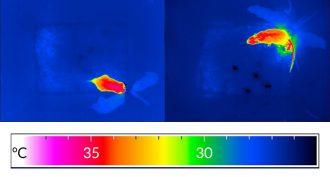 Brain
BrainMice brains hint at how bodies keep their cool
Nerve cells in mice can keep the body cool and may prevent high fevers. The discovery could have implications for obesity and other health issues.
-
 Health & Medicine
Health & MedicineThis supplement makes calorie-rich foods less tempting
A supplement that contains the fatty acid propionate causes the brain to rate high-calorie foods less appealing.
-
 Brain
BrainOur eyes can see single specks of light
The human eye can detect a single photon. This discovery answers questions about how sensitive our eyes are. It hints at the possibility of using our eyes to study issues of quantum-scale physics.
-
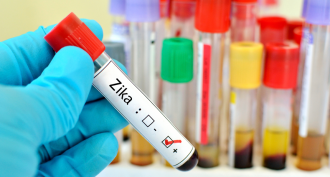 Health & Medicine
Health & MedicineZika can damage the brains of even adults
The Zika virus can damage a developing baby’s brain. The infection can also kill off an important type of cells in adult brains, a new mouse study finds.
By Meghan Rosen -
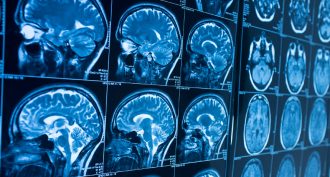 Brain
BrainHormone affects how teens’ brains control emotions
Using scans of brain activity, scientists show that surging hormones drive where emotions get processed in a teen’s brain.
-
 Chemistry
ChemistryGasp! At the movies, your breaths reveal your emotions
Researchers took air samples as they screened movies. What people exhaled were linked to film scenes’ emotional tone, they found.
-
 Brain
BrainTeen drinking may damage ability to cope with stress
Teens are often tempted to drink alcohol. Drinking too much — and repeatedly — can hurt their ability to manage stress, a study in rats indicates.
-
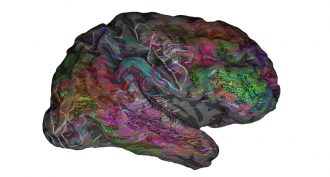 Brain
BrainMapping word meanings in the brain
A detailed new map shows that people comprehend words by using regions across the brain, not just in one dedicated language center.
By Meghan Rosen -
 Brain
BrainSmall region of brain recognizes facial expressions
Scientists identify the brain region responsible for recognizing facial expressions in others. It helps us know whether others are happy or sad.
-
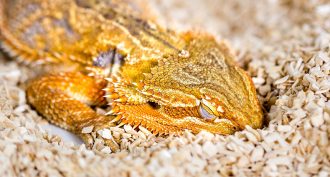 Brain
BrainDragons sleep like mammals and birds
Lizards seem to alternate between two sleep states, just as mammals and birds do. This finding could change our understanding of how sleep evolved.
-
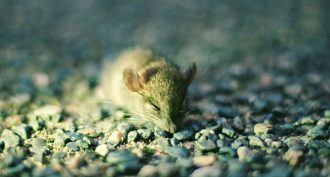 Brain
BrainA ‘cocktail’ in the brain can trigger sleep
A new study finds that a ‘cocktail’ of chemicals in the brain can directly cause mice to fall asleep or waken.
-
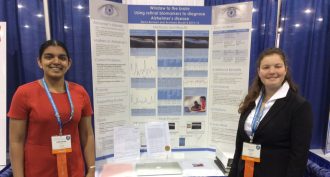 Brain
BrainEyes offer new window into Alzheimer’s disease
The eye’s retina is distinctly different in people with Alzheimer’s disease compared to those with no signs of the malady, two teens now report finding. It could lead to earlier diagnosis of the brain disease.
By Sid Perkins